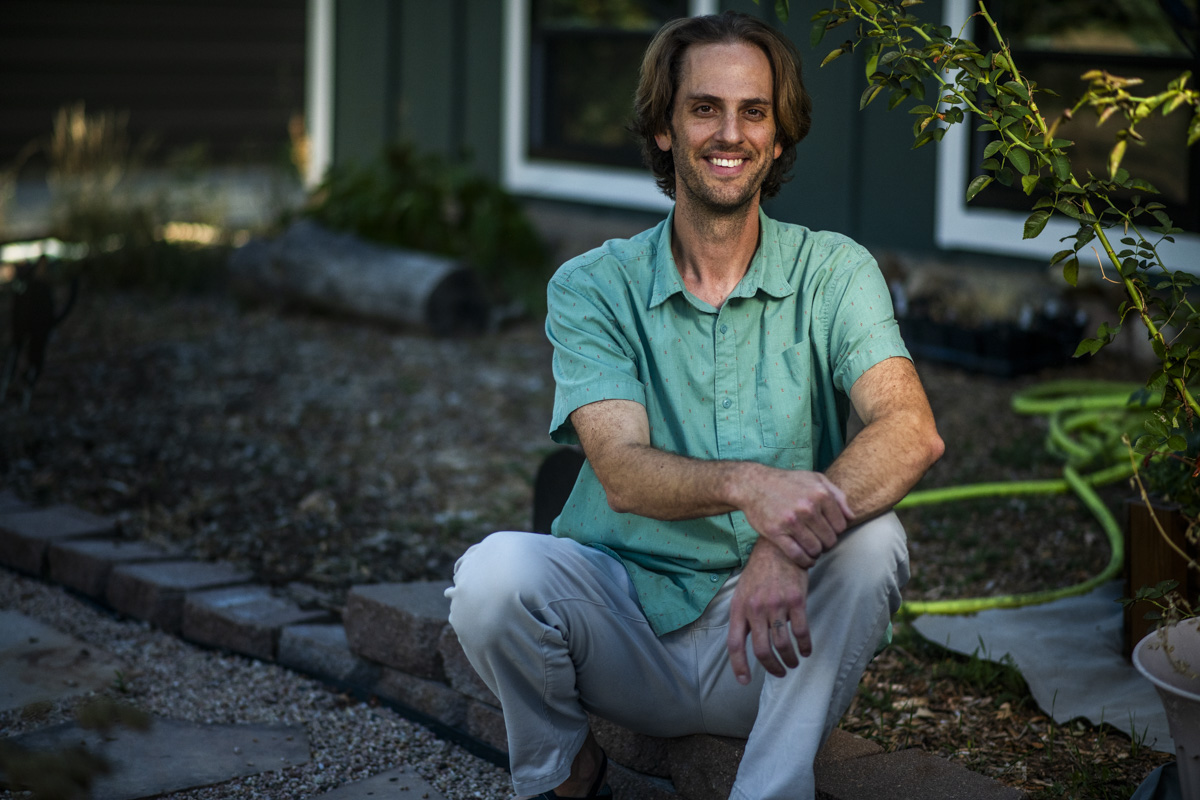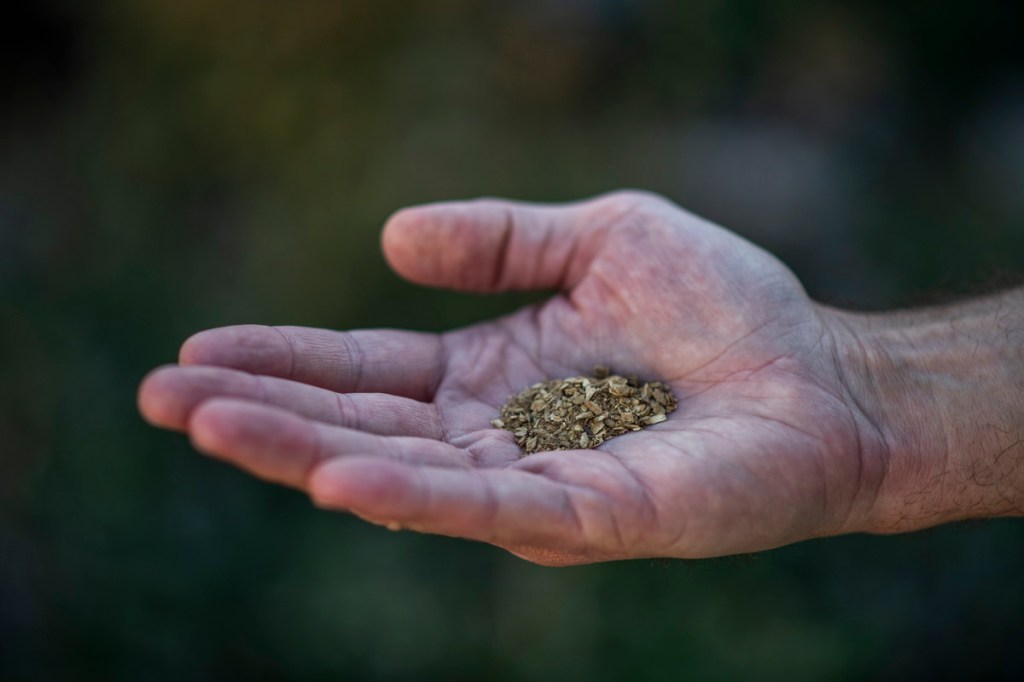
Evan Semon Photography

Audio By Carbonatix
AnneClaire Stapleton was drowning and didn’t know it.
Kevin Franciotti was in the grip of heroin and trying to claw his way out.
Both found the same solution: ibogaine, an obscure psychedelic traditionally used by Central African tribes, and decriminalized under Colorado’s Natural Medicine Health Act after voters gave their approval in 2022. The state’s Natural Medicine Advisory Board recently recommended that ibogaine be introduced into Colorado’s natural medicine healing centers, but that effort will take time as other state agencies consider its implementation and sourcing issues are addressed.
For Stapleton, ibogaine interrupted a cycle of PTSD and grief. For Franciotti, it cracked open the trap door of opioid withdrawal. Their paths — different, but parallel — frame the stakes of a national movement that stretches beyond Colorado’s borders. As lawmakers in multiple states weigh whether to fund clinical trials that could bring ibogaine into the American medical system, Stapleton and Franciotti’s stories are the kind of living proof policymakers shouldn’t ignore.
From CNN’s War Desk to a Clinic in Mexico
Stapleton spent sixteen years at CNN, much of it steering breaking news coverage of conflict zones: Gaza, Ukraine, mass shootings in American suburbs. She was good at compartmentalizing — or thought she was.
By 2024, her walls had cracked. Her husband was deployed again. She had two kids at home, one in crisis, and she’d lost a close friend to breast cancer. Years of covering the worst days of other people’s lives had finally caught up with her.
“I didn’t even have the vocabulary,” she says. “I just knew I wasn’t okay.”
A friend who’d suffered a traumatic brain injury mentioned ibogaine. She called doctors, veterans, scientists. She read studies about dormant brain regions lighting back up after ibogaine treatment. Eventually, she stopped researching and booked a flight to Mexico.
Her coaches told her to bring questions into the session, to share her inquiries with the medicine. She asked the one she’d been avoiding: Do I have PTSD?
“The vision laughed at me,” she says. “Like, of course you do.”
She recoiled. She wasn’t a soldier, just the one assigning coverage, bearing witness, carrying stories home. But ibogaine doesn’t negotiate. For hours, it forced her to confront moral injury and survivor’s guilt she had long refused to name.
When it was over, she felt like she had been pulled from underwater.
“I didn’t know I was drowning until I wasn’t,” she says.
The integration work mattered just as much. Back in the U.S., she joined coaching sessions through a nonprofit for military spouses. They named the injuries she had minimized, helped her accept that trauma can wound witnesses, too.
“Ibogaine interrupted the drowning,” she says. “The coaching kept me from swimming back into it.”
Stapleton left CNN last year, and is now chief communications officer for Americans for Ibogaine, a nonprofit organizing lawmakers and public-health officials around the country, where she works alongside former Texas Governor Rick Perry advocating for the medicine. She started an ambassador program for the organization to amplify first-person stories beyond the veteran community.
“This medicine has touched people from every background,” she says. “The stories need to reflect that.”

Some people have found ibogaine a lifeline to recovery.
Evan Semon Photography
“A Compassionate Detox”
Franciotti grew up on Long Island, curious about drugs before he was out of high school. By college, he was injecting heroin. Arrests and rehab stints followed, but nothing stuck.
He had organized a student conference on ibogaine years earlier, fascinated by its underground reputation as an addiction interrupter. In 2011, desperate, he convinced his parents to help him pay for treatment at a clinic in Mexico.
He swallowed the capsules and soon the visions hit.
“Eyes closed, it was a loud, constant filmstrip,” he says. “Eyes open, I was lucid enough to ask for help to the bathroom.”
The medicine dulled the worst of withdrawal, flattening the agony that usually sent him running back to heroin.
“It was a compassionate detox,” he says.
Then came the “gray day,” the crash after the visions, when shame and fear surged back. He wanted to bolt, but he didn’t.
Back in Florida, he pieced together sobriety with meetings, a sponsor, a job. For months he gave ibogaine most of the credit. By the end of the year, he gave more to the grind.
“Ibogaine helped me start,” he says. “The rest kept me there.”
He’s honest about the bumps since: a relapse after his father’s death in 2016, grief after the stillbirth of his son in 2021. That time he went to a traditional iboga ceremony in Costa Rica, not to detox but to grieve, at a newly opened clinic.
Now he’s an addiction counselor in Denver and cofounder of Psychedelics in Recovery, a peer support network that blends recovery principles with psychedelic curiosity. He doesn’t oversell ibogaine’s benefits — he says he’s happy that ibogaine is the one substance excluded from the Natural Medicine Health Act’s gifting provision — but doesn’t discount it,either.
“We don’t have the trials we should have,” he says. “That’s not proof it doesn’t work — it’s proof of what prohibition did to research.”
The Policy Push
Until recently, ibogaine existed in a kind of liminal space in the U.S. — case studies in journals, clinics in foreign countries, whispered reputations in recovery communities.
That’s changing.
Voters in Colorado decided to decriminalize ibogaine in 2022, although unlike the other plant medicines listed on that ballot measure — psilocybin, DMT, and mescaline — it’s not legal to share or gift ibogaine or iboga, though its cultivation and possession are legal.
In June, Texas lawmakers allocated $50 million for research into addiction and brain trauma, including use of psychedelics. Perry was instrumental in the effort, Stapleton says, having taken ibogaine himself for long-term anxiety issues. Their organization hopes that template — using opioid abatement funds from lawsuit spoils to fund clinical trials — will spread. In early November, delegations from more than twenty states will meet in Aspen to work on a multi-state coalition strategy. The idea is simple: pool resources, create trial sites across the country, and share benefits if ibogaine ever makes it through the FDA pipeline.
“Phase Three trials can cost a billion dollars,” Stapleton says. “No one state can do that alone.”
The urgency is obvious. Fentanyl deaths keep climbing. Traditional rehab helps some but fails others. People suffering from PTSD and traumatic brain injuries are suffering, as are their families. Stapleton and Franciotti show that ibogaine can work where other tools didn’t.
Colorado voters decriminalized ibogaine along with psilocybin in 2022. But everyone agrees ibogaine is different. It carries real cardiac risks. Safe treatment requires real medicine — labs, EKGs, genetic testing, maybe magnesium drips. That’s why clinical trials, not decriminalization, are the real frontier.
Colorado could become one of the trial sites if the coalition succeeds, as one of the states offering federally-approved clinical trials. That would mean moving ibogaine out of rumor and into data, where patients, doctors and insurers could finally engage with it on evidence instead of anecdotes.
Stapleton and Franciotti are already living proof.
“I like the word interrupter,” Stapleton says. “It gives you a window. You still have to walk through it.”
“Ibogaine got me through the door,” Franciotti says. “The rest was up to me.”
Ibogaine isn’t tidy. It can be dangerous. It can be lifesaving. It doesn’t fit wellness trends or pharma pipelines. But in a state defined by both the opioid crisis and a pioneering role in drug reform, Colorado will likely be an integral part of its future.
For Stapleton, it meant surfacing from years of silent trauma. For Franciotti, it meant surviving long enough to build a new life.
Neither of them calls it a miracle. Both call it a lifeline.
For policymakers staring down a fentanyl epidemic, that may be the most important evidence of all.